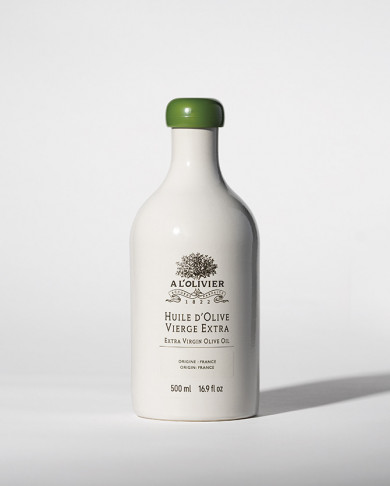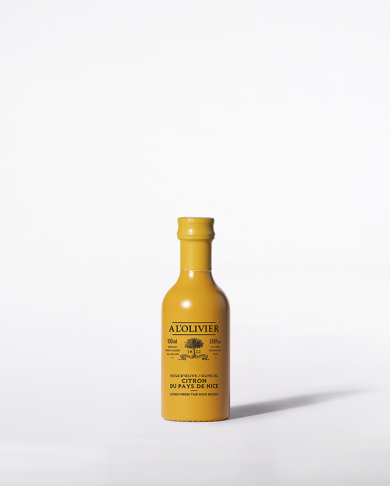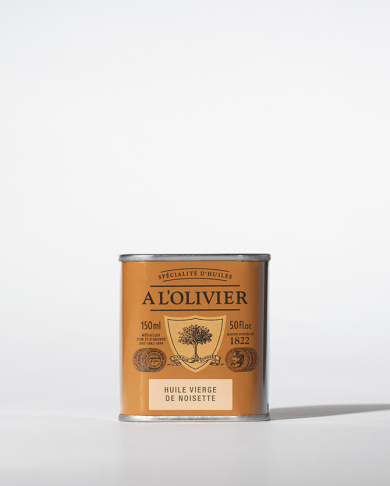INSPIRATIONS


Expert advice
| 08.11.2021
WHICH AROMATIC OLIVE OILS ARE BEST FOR LIGHT DESSERTS?

Pound cakes, madeleines, sponges... all these delicious cakes can be made with vegetable oil instead of butter.
A golden rule to remember: butter is about 16 to 18% water, whereas oil is 100% fat. So, if a recipe calls for 100 g of butter, this can’t be substituted with 100 g of oil, otherwise the cake batter will be too greasy. If you need to substitute butter for oil, remember to adapt the quantities accordingly. Follow our guide to learn which vegetable oils to use to make deliciously airy cakes.
Replacing butter with olive oil
In cakes, olive oil can make a good substitute for butter, creating sponges which are lighter and easier to digest. Choose an extra virgin olive oil that can handle higher heats. Unlike other vegetable oils that are changed by heat, olive oil can handle much higher temperatures, with extra virgin olive oil’s smoke point being 210°C. Use a whisk to thoroughly mix the olive oil into the batter and remember to oil the cake tin so that the sponge is easy to remove. Some particularly delicious recipes include madeleines with lemon or orange blossom infused olive oil, as well as pound cake with olive oil. Save time and add a dash of extra flavour with our tasty, fragrant oils. Some of our favourite aromatic oils include verbena & chilli (perfect in a chocolate cake), lavender & tonka bean (for a delicious clafoutis) and vanilla & combava (a real delight in a sponge cake). These oils will really get your creative juices flowing.
Refined or unrefined oil?
When choosing the best oil for baking, the question of refined oil arises. Oil extracted using pressure is a virgin oil. This mechanical method preserves the vitamins, nutrients and delicate flavour of the oils. A refined oil is one that is extracted by heat through the use of solvents: the result is an oil that’s stable over time and easy to store. Extracting with heat and solvents means more oil can be obtained from the raw material (which is useful when pressing small seeds, such as grape seeds) and provides a better yield than the cold pressure used for virgin oil. Virgin oils, particularly olive, are a great source of vitamin E, omegas 3 and 6, as well as flavour.
Our selection of aromatic oils for light, tasty cakes
Now that you know everything (or almost everything) about oil and baking, you can switch things up by using other oils in addition to olive oil. There are two main families of oils: those with a neutral taste and those with a stronger flavour. Grapeseed oil and sunflower oil are neutral. These oils are a safe bet and work well in any cake recipe.
However, we don’t recommend using virgin rapeseed oil since it can’t handle higher temperatures.
Coconut oil, whose saturated fatty acid content explains its texture (solid when cool, liquid when warm), tastes delicious in cakes. Its intense flavour goes well with chocolate. Remember to melt coconut oil over low heat before mixing it into your batter.
Finally, walnut and hazelnut oils can be mixed in equal parts with neutral oils (grapeseed, sunflower) to add a nutty flavour to your cake. For example, walnut oil will intensify the delicious nutty flavour of a yoghurt, chocolate and walnut cake. Good to know: the walnuts and hazelnuts used to make A l’Olivier’s oils are lightly roasted before being ground to make their oil even more delicious, perfect for baking tasty pastries.

 Menu
Menu
 Mon compte
Mon compte  Wishlist
Wishlist  Panier
Panier 


